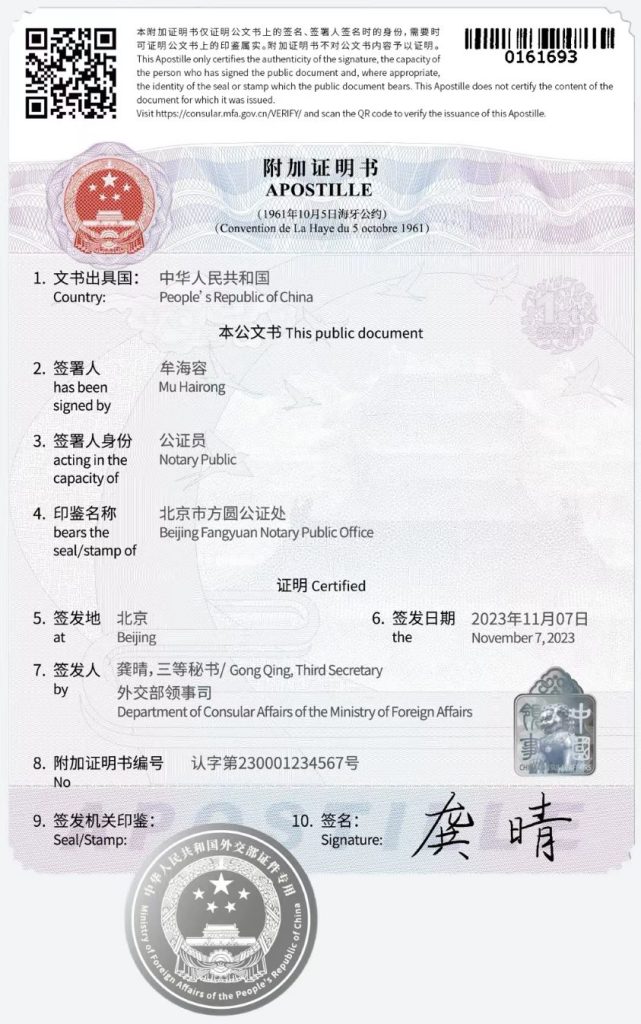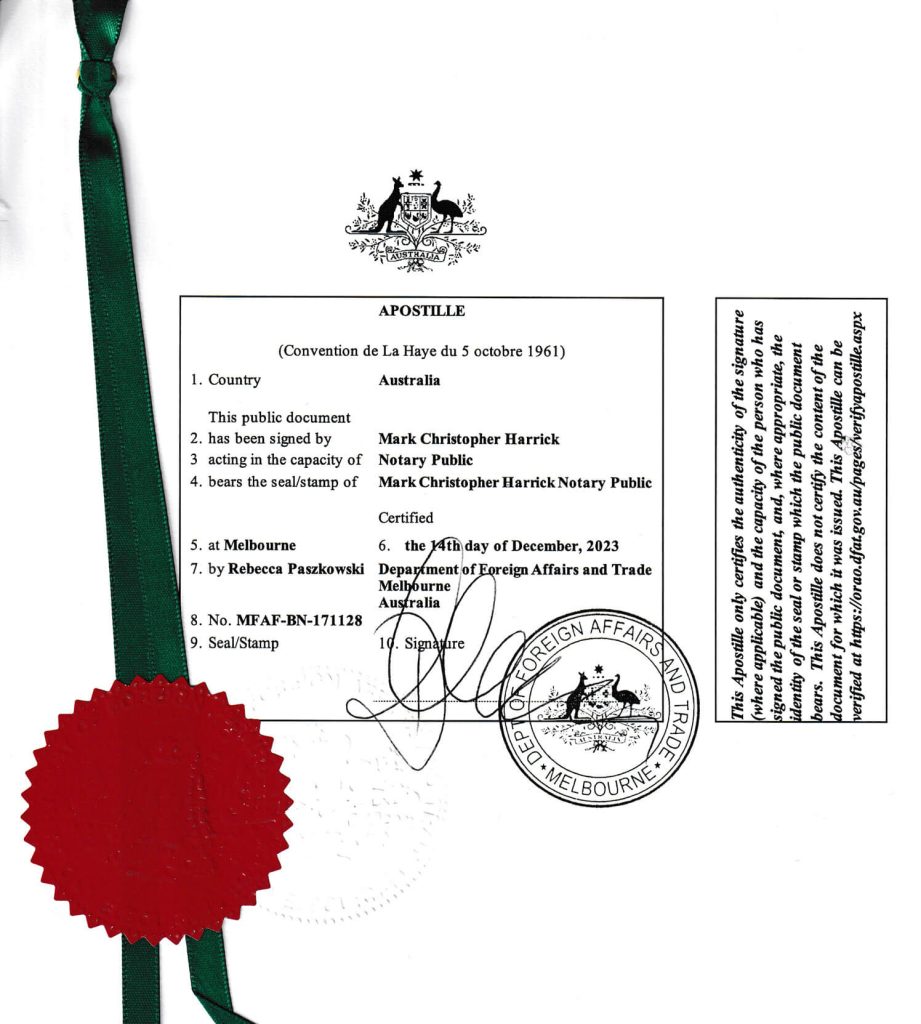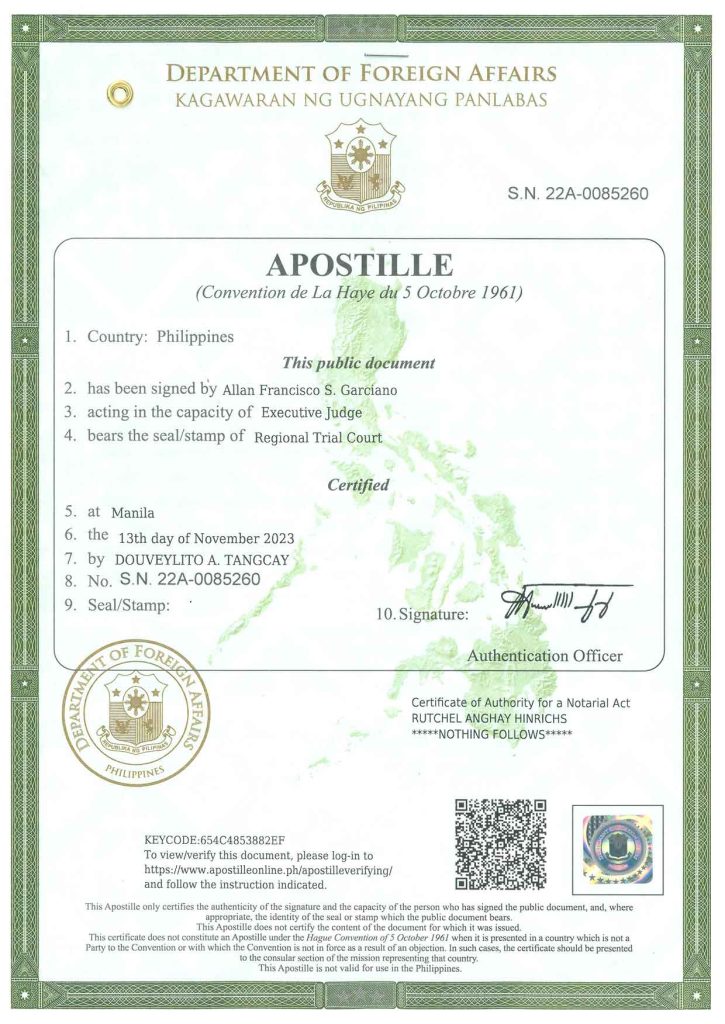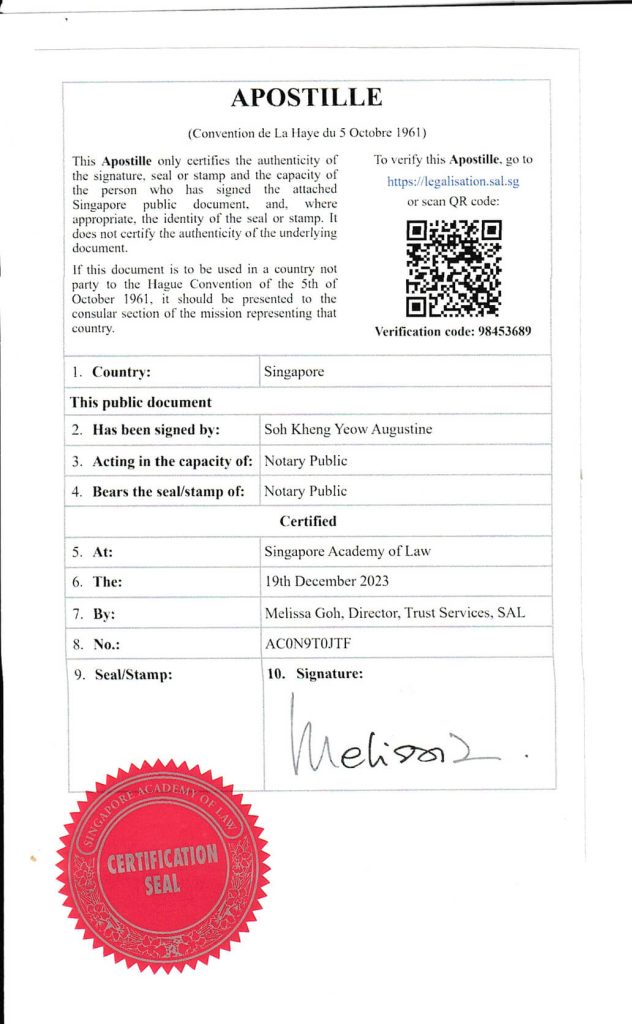What Is an Apostille?
Individuals and businesses that are engaged in cross-border activities (e.g. immigration, work/study abroad, international trade) often need to show public documents issued in one country to officials in another country. An Apostille is a certificate issued by the country of origin to authenticate the stamp, seal, or signature on a public document to be used abroad. Officials in the country of destination use the Apostille to ensure the authenticity of a foreign public document. Note that an Apostille does not certify the content of the document for which it was issued.
Apostille Convention
In the Hague, the Netherlands, there is an intergovernmental organization called HCCH (Hague Conference on Private International Law – Conférence de La Haye de droit international privé). HCCH’s mission is to negotiate and create international treaties that bridge the differences between countries’ legal systems. The most widely used treaty created by HCCH is the Convention of 5 October 1961 Abolishing the Requirement of Legalisation for Foreign Public Documents, commonly known as the Apostille Convention or Hague Convention. It is under the Apostille Convention that millions of Apostilles are issued each year around the world.
Who can issue/accept Apostilles?
Only countries that have joined the Apostille Convention can issue and accept Apostilles. Since its initiation in 1961, more than one hundred countries have joined the convention. Each country has one or multiple Competent Authorities that issue Apostilles. The list of contracting countries and the Competent Authorities of each country is available in the Apostille Section on HCCH’s website.
To which documents does the Apostille Convention apply?
The Apostille Convention uses the general phrase “public documents” to define the documents to which it applies, followed by a few examples including “administrative documents” and “notarial acts”. The ABCs of Apostilles, which is HCCH’s official publication explaining the basics of an Apostille, further states that “Whether or not a document is a public document is determined by the law of the country in which the document was issued.” Despite the broad meaning of public documents, Apostilles are most commonly issued to notarized civil documents including notarized power of attorney, birth certificate, marriage certificate, police certificate, and diploma. If you are not sure about whether a particular document is a public document, you should contact the Competent Authority in the country where the document was issued.
Apostille vs. Consular Authentication
The Apostille Convention applies when both the country where the document is issued and the country where the document is to be used are parties to the convention. If either country has not joined the convention, the document needs to be authenticated by a traditional method known as consular authentication/legalization/attestation.
Consular authentication is a multi-step process that involves both the authority of the country where the document is issued and the foreign embassy or consulate of the country where the document is to be used. As it requires multiple authorities to process the document, consular authentication is usually costly and time-consuming. By contrast, the Hague Apostille Convention provides a simplified framework that avoids any involvement of the foreign embassy and replaces the cumbersome consular authentication with a single Apostille.
How to verify an Apostille?
The Apostille Convention requires each contracting country to keep a register of all the Apostilles it has issued. The Competent Authority in the country of origin verifies an Apostille by checking its details against the records on the register. Many countries have established an online electronic register (e-Register) which allows for online verification of Apostilles issued in the same country. Some countries also print a quick response (QR) code on Apostilles for quick verification with a cellphone. If an Apostille is issued in a country where online verification is unavailable, the issuing authority verifies it upon request by telephone, email, or otherwise. Contact information of the Competent Authorities and the URLs of the e-Registers are available in the Apostille Section on HCCH’s website.
Sample Apostilles
Below are sample Apostilles issued in China, Australia, the Philippines, and Singapore.




